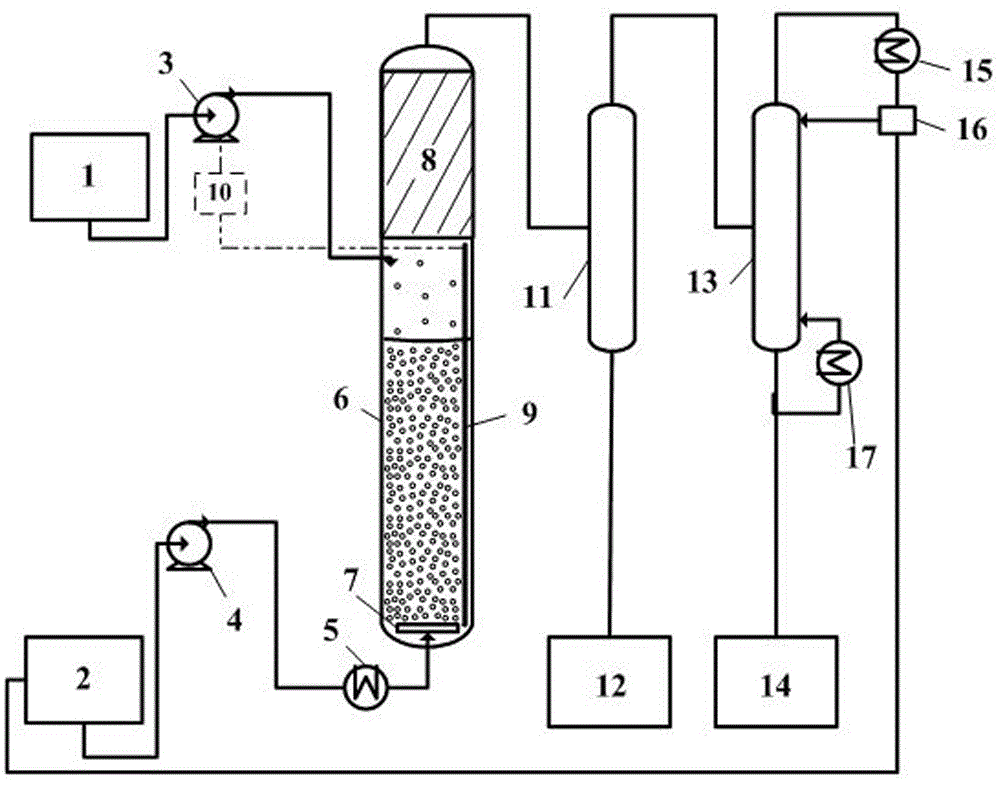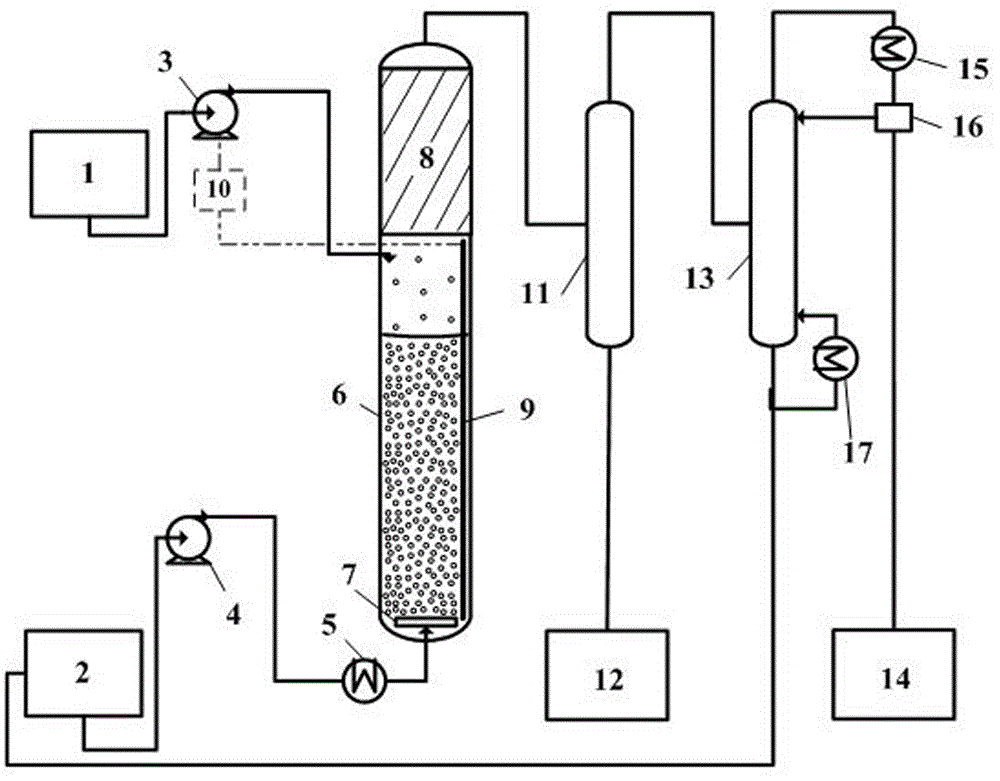Glycerinum alkyl ether production method and device based on heterogeneous catalysis
A technology of glycerol alkyl ether and production method, which is applied in the direction of dehydration of hydroxyl-containing compounds to prepare ether, ether preparation, organic chemistry, etc. It can solve the problems of reduced conversion rate of raw materials, large labor input, and limited production efficiency, so as to improve reaction conversion efficiency and prolong service life
- Summary
- Abstract
- Description
- Claims
- Application Information
AI Technical Summary
Problems solved by technology
Method used
Image
Examples
Embodiment 1
[0054] The structure of the glycerol alkyl ether production plant is as follows: figure 1 , mainly composed of a glycerin storage tank 1, a low-carbon alcohol storage tank 2, a bubble column reactor 6, a flash column 11 and a rectification column 13, etc.
[0055] The upper part of the bubble column reactor 6 is provided with a packing reflux demister 8, the middle and lower part is a reaction zone, and a gas distributor 7 is set at the bottom of the tower; the packing reflux demister 8 is filled with regular or bulk packing, and the reaction zone It is filled with a solid alcohol dehydration catalyst, and is equipped with a liquid level sensor 9, which is electrically connected to the glycerin feed pump 3 through a liquid level controller 10; Below the froth, the gas phase feed port is set at the bottom of the reactor and communicated with the gas distributor, and the reaction material outlet is set at the top of the reactor.
[0056] The liquid glycerin storage tank 1 is co...
Embodiment 2
[0060] The production device is the same as in Example 1. The reactor is filled with catalyst MCM-22 with a particle size of 200 mesh. Pump ethanol and glycerin into the reactor according to the liquid volume flow ratio of 5:1, and control the mass space velocity of ethanol to be 3h -1 . Among them, the ethanol is preheated to 79°C through the heat exchanger before being gasified and then enters the reactor, and the glycerin is directly sent into the reactor. The reaction temperature in the reactor is set at 225°C and the pressure at 0.3Mpa; the feed temperature of the flash tower is 220°C and the flash pressure is 0.3Mpa; the feed temperature of the rectification tower is 115°C and the reflux ratio is 3. The experimental results are shown in Table 1.
Embodiment 3
[0062] The production device is the same as in Example 1. The reactor is filled with catalyst MCM-41 with a particle size of 200 mesh. Turn on the liquid feed pump in turn, pump n-propanol and glycerin into the reactor according to the liquid volume flow ratio of 5:1, and control the mass space velocity of n-propanol to be 3h -1 . The n-propanol is preheated to 98°C through a heat exchanger to be vaporized before entering the reactor, and the glycerin is directly sent into the reactor. The reaction temperature in the reactor is set at 245°C and the pressure at 0.3Mpa; the feed temperature of the flash tower is 230°C and the flash pressure is 0.3Mpa; the feed temperature of the rectification tower is 130°C and the reflux ratio is 5. The experimental results are shown in Table 1.
PUM
| Property | Measurement | Unit |
|---|---|---|
| particle size (mesh) | aaaaa | aaaaa |
| particle size (mesh) | aaaaa | aaaaa |
Abstract
Description
Claims
Application Information
 Login to View More
Login to View More - R&D
- Intellectual Property
- Life Sciences
- Materials
- Tech Scout
- Unparalleled Data Quality
- Higher Quality Content
- 60% Fewer Hallucinations
Browse by: Latest US Patents, China's latest patents, Technical Efficacy Thesaurus, Application Domain, Technology Topic, Popular Technical Reports.
© 2025 PatSnap. All rights reserved.Legal|Privacy policy|Modern Slavery Act Transparency Statement|Sitemap|About US| Contact US: help@patsnap.com



